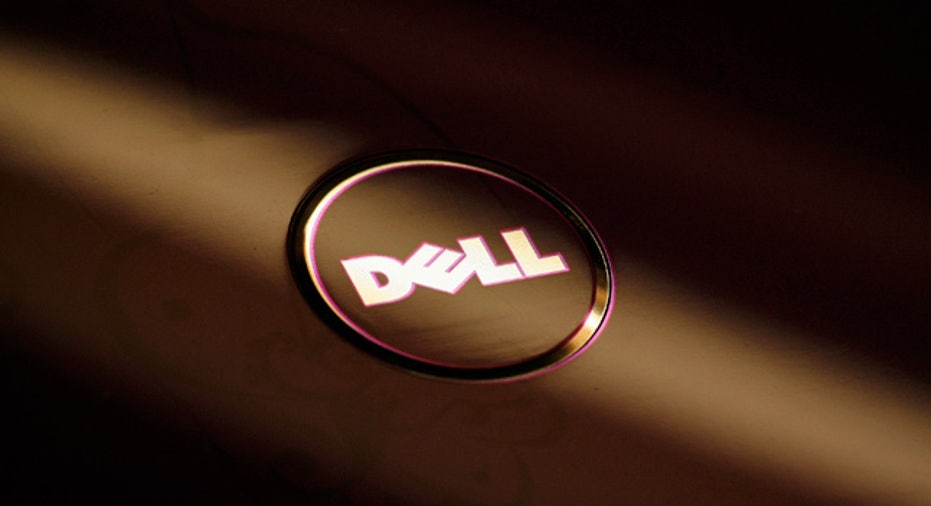Dell Buyout Raises Awkward Conflict of Interest Questions

Wall Street and Silicon Valley are buzzing about a potential mega-deal to take struggling Dell (NASDAQ:DELL) private, but the proposed leveraged buyout is riddled with conflicts of interest that could slow or even scuttle a final agreement if directors aren’t careful.
A deal of this magnitude probably wouldn’t even be possible without the involvement of founder and CEO Michael Dell, who would pledge his 16% stake in the company to ease the amount of equity that needs to be absorbed.
But the executive’s participation is raising some eyebrows. On the one hand, Michael Dell has a duty to secure the best price for shareholders. On the other, too rich an offer could make it harder for the buying group, which he is an integral part of, to pay down debt and see a meaningful return on its investment.
“Any time you have an insider trying to buy out the public shareholders the opportunity presents itself for an unfair transaction. The shareholders have to be vigilant,” said Mark Rifkin, a shareholder rights litigator and partner at Wolf Haldenstein Adler Freeman & Hertz.
That’s why it’s crucial for Dell’s management and board to protect itself and reassure shareholders by installing safeguards such as an independent committee or perhaps a Go-Shop period.
Negotiationing With Himself?
Dell and its founder are reportedly in talks with private-equity firms Silver Lake and TPG Capital over a leveraged buyout worth $22 billion to $25 billion.
But as is the case in leveraged buyouts, the deal requires a great deal of new debt -- perhaps as much as $15 billion -- to buy out the existing shareholders.
Mindful of their obligations to shareholders, CEOs at companies on the verge of being sold would normally fiercely haggle for the best possible price.
But Michael Dell likely realizes that if the purchase prices rises much above $25 billion, he runs the risk of saddling the private company’s balance sheet with too much debt, making it harder for him and the private-equity firms to cash out in the future at a meaningful price if the transformation goes as planned.
In these types of management buyouts, “There’s always an incentive for management to low ball it. That’s the basic conflict,” said Charles Whitehead, a professor at Cornell Law School.
Michael Dell is essentially on “both sides of the transaction,” notes Peter Fitzpatrick, a partner at K&L Gates.
Special Committee to the Rescue?
In an effort to allay shareholder concerns, Dell could take a number of steps, including creating an independent committee that would have its own investment bankers, legal team and get final say on a transaction.
Normally, this special committee would include other board members who don’t have a significant ownership stake in the company and aren’t officers or part of the management team. In other words, players who don’t have an economic interest that could cloud their judgment.
However, everyone on Dell’s 12-member board other than Michael Dell is listed as an “independent” director, including lead independent director Alex Mandl.
Still, Fitzpatrick said it would be “prudent” for Dell to “demonstrate independence” by creating a special committee, especially because Michael Dell may have handpicked some of the independent directors, calling into question their loyalties.
“You get into murky areas of who is independent and who is not,” said Fitzpatrick.
If no special committee is formed, Fitzpatrick said Michael Dell should at least recuse himself from the board discussions and votes because of the conflict of interest.
Round Rock, Texas-based Dell didn’t immediately respond to a request for comment.
Window Shopping
Another way boards strive to avoid conflict-of-interest accusations is by creating a Go-Shop period. This is typically a 30- or 60-day window after the deal is inked where the target company can seek out better offers from prospective buyers in an effort to demonstrate to shareholders that the agreed price is fair.
In management buyouts, other suitors may be unwilling to outbid existing management out of fear of overpaying.
“The Go Shop never really works in this context because the people with the best information” are already involved in the management buyout, said Whitehead.
Likewise, a Go-Shop period for Dell may be complicated by the sheer size of the potential deal. Few other companies or investor groups would seemingly be able to cobble together the capital and financing needed to acquire Dell, which has seen its market cap swell to $22.2 billion on the M&A buzz.
“All the more reason you have to do it right the first time,” said Rifkin.
Given the complex nature of the potential leveraged buyout and involvement of management, observers believe Dell risks shareholder backlash if it fails to handle the sale process transparently.
“If it doesn’t look fair to [shareholders] the law permits them to at least try to recover a fair price or even stop the deal from going forward,” said Rifkin.



















